The endless night of Macronism France grapples with social and economic turmoil
On September 18, hundreds of thousands of French people took to the streets to protest President Macron’s policies, resulting in clashes with the police. The newly appointed government is once again hanging in the balance, and an impeachment process has been initiated against the French president.
Tightrope governments
A heated autumn has begun in France. This has nothing to do with climate change. The situation is being pushed to the limit by the course of President Macron and his liberal team, which has led France into a dead end. The crisis affects the economy, politics, and society. France’s budget deficit is almost twice the EU limit of 3%, and the debt has already reached 114% of GDP.
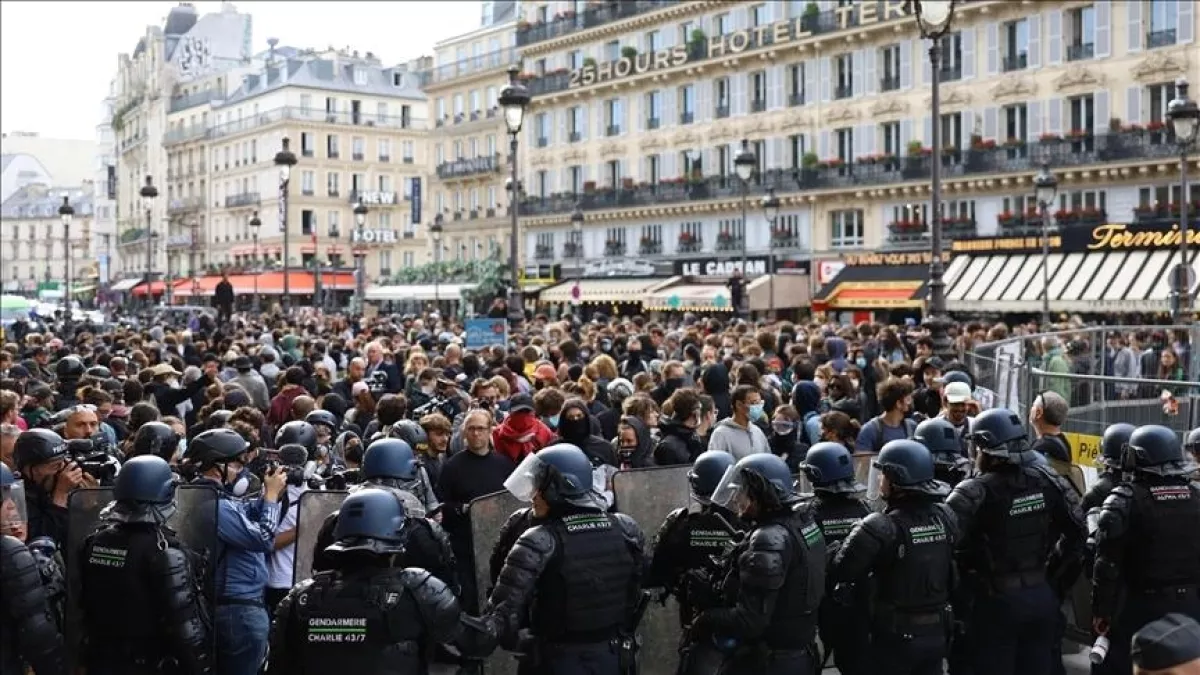
In 2024, after the adventurous dissolution of parliament, Macronists were defeated in the elections. Now, Macron is unable even to form a stable majority government. Over the past two years, four prime ministers have already been forced to resign.
On September 8, yet another government, led by François Bayrou, fell, after which Macron appointed former Defence Minister Sébastien Lecornu as the new prime minister. However, he also has to lead a minority government, and Lecornu’s cabinet depends on complex agreements with opposition or influential parties that today hold the parliamentary majority.
On Wednesday, September 17, the new prime minister had to meet with leaders of the Socialist Party. Once repeatedly in power, the Socialist Party has suffered a severe decline in recent years. Yet it seems that Macron’s anti-social policies have given the Socialists a new chance. Today, the Socialist Party holds the fourth-largest parliamentary faction.
In the negotiations, the Socialists demanded that Lecornu halt social cuts, ensure fair budget contributions from the ultra-rich, raise the population’s purchasing power, and abolish the pension reform despised by the French. In March 2023, Macron and his prime minister Élisabeth Borne, without parliamentary approval and ignoring popular protests, raised the retirement age from 62 to 64.
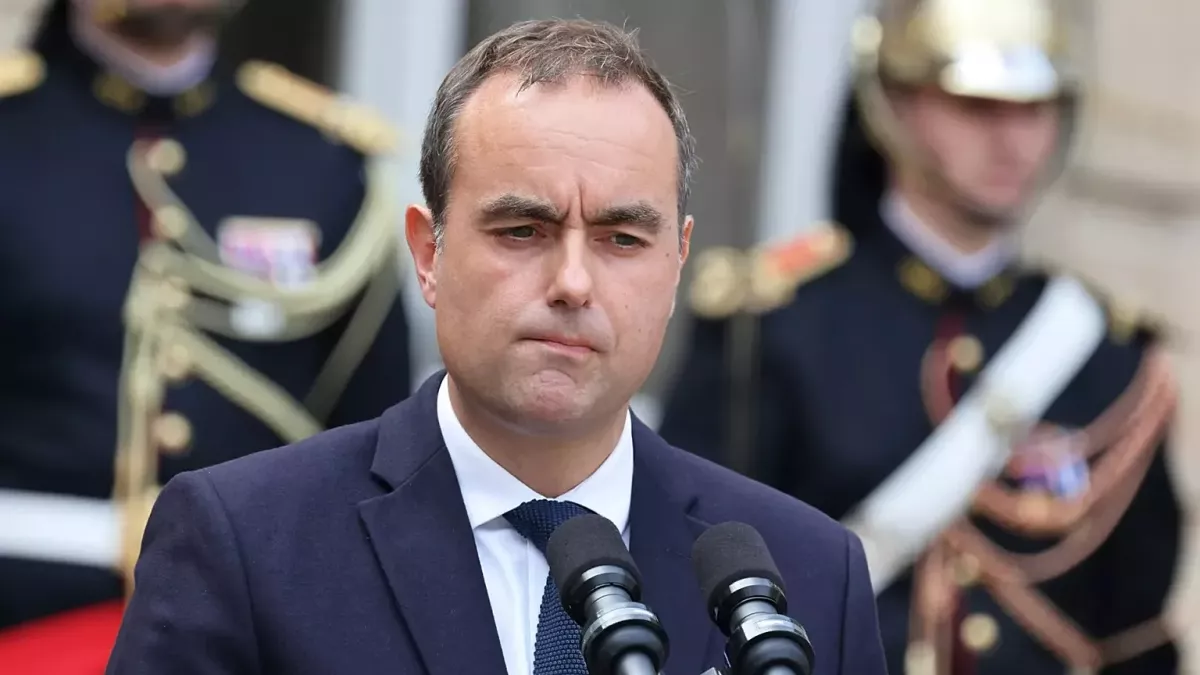
Today, the Socialists are also demanding that Lecornu adopt their proposals for the 2026 budget. The previous government, led by François Bayrou, lost a vote of no confidence precisely because of plans to cut budgetary, including social, spending by €44 billion.
Polls show that today 86% of surveyed French citizens support raising taxes on the ultra-rich, while 66% favour reversing the increase in the retirement age.
Yet Lecornu also has a card up his sleeve. If the left refuses to support his cabinet, Emmanuel Macron could call new elections. Considering the growing popularity of the far-right, the results could be unpredictable…
Disrespect for the sovereignty of the people
During the vote of no confidence in Prime Minister Bayrou, both Jean-Luc Mélenchon, leader of the La France Insoumise (France Unbowed) far-left party, and Marine Le Pen, head of the far-right National Rally, called on President Macron to resign.
On September 10, 86 deputies—most belonging to the France Unbowed faction—submitted a request to initiate impeachment proceedings. A petition calling for Macron’s resignation has also been posted on the National Assembly’s petition platform: “We demand a change in policy, and therefore the resignation of the President of the Republic.” It further states that Macron is hated “because he refuses to respect the sovereignty of the people and obstructs the democratic resolution of crises.”
However, the impeachment process is far from simple. Macronists have already managed to block it: in October 2024, when France Unbowed attempted to push for impeachment through parliament, the deputies’ request was rejected by a special parliamentary commission. The “rebels,” as the Unbowed are sometimes called, later claimed that Macron was saved from impeachment by Marine Le Pen, who did not support the initiative. Her party, the National Rally, has long ceased to be an opposition to the president and has effectively become Emmanuel Macron’s life insurance policy.
“Macron promised to fight poverty, but he fights the poor…”
Ordinary French citizens are expressing their views on Macron’s policies through mass protests. On Thursday, September 18, following calls from the trade unions CGT, CFDT, FO, CFE-CGC, CFTC, UNSA, FSU, Solidaires, and leftist groups, demonstrations and strikes began across the country. Marine Le Pen’s National Rally stated that it “understands” the French people but did not call on them to take to the streets.
In their statement, the unions described France’s 2026 budget as an “unprecedented cruelty,” planning cuts to public services, reforms to unemployment insurance, freezes on civil servant and contract worker salaries, reductions in social benefits, pension deindexation, potential cuts to paid leave, and more.
At the same time, by cutting social guarantees for ordinary citizens, Macron and his government granted large corporations tax benefits worth €270 billion. After the first protests on September 10, French workers won an initial victory: the authorities abandoned their decision to cut two days of public holidays.
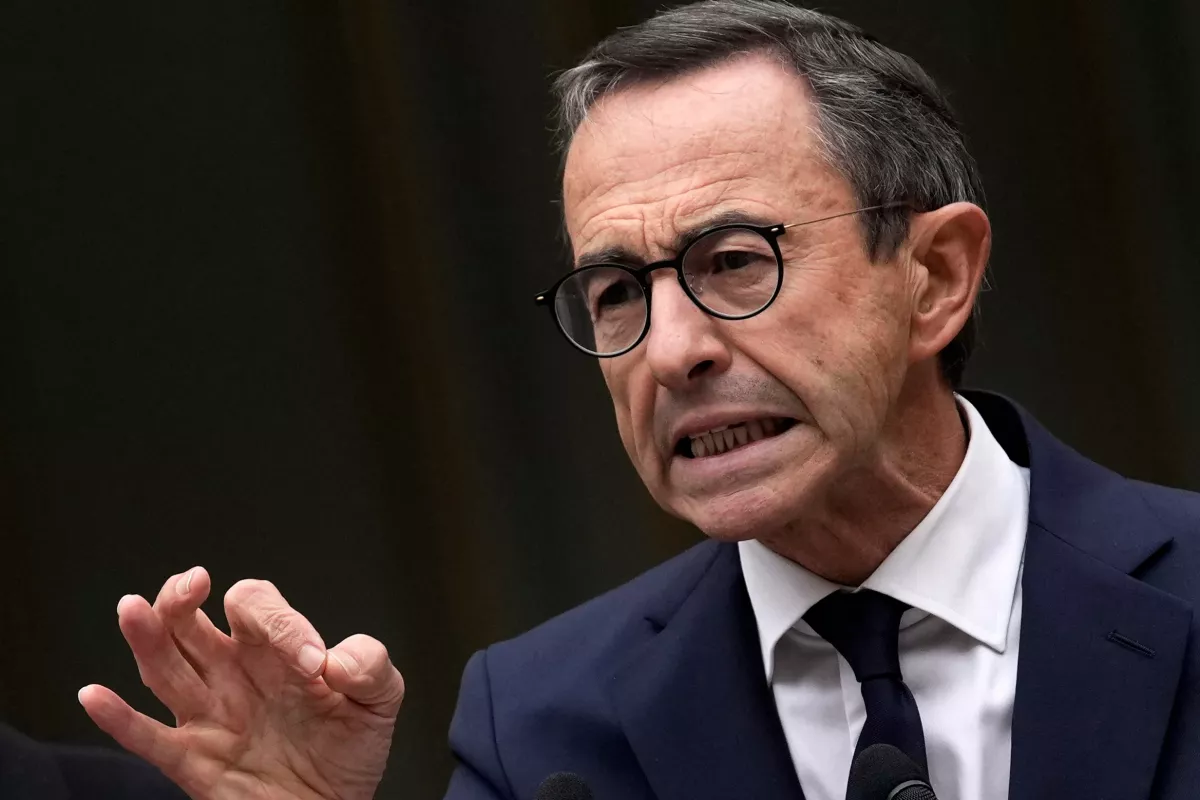
On the eve of the union-led protests, Interior Minister Bruno Retailleau announced that 80,000 police officers and gendarmes would be deployed across the streets that day. Armoured vehicles such as the Centurion and water cannons were prepared for dispersing demonstrations. According to Retailleau, aggressive groups were expected, along with attempts to block strategically important sites. The unions called this police mobilisation unprecedented, noting that during previous protests against the pension reform, no more than 10–15 thousand security forces had been deployed.
The first clashes with police began early on September 18 in Paris and Marseille, where tear gas grenades were used. In Toulouse, attempts to block traffic were prevented by police from the morning, yet protesters in the city centre found a workaround – moving in groups back and forth across pedestrian crossings, calling it “Operation Duck” (“Opération canard”). Previously, police had not known how to respond to such tactics, but this time arrests were made.
Sophie Binet, General Secretary of the General Confederation of Labour (CGT), said: “The Interior Minister is pouring fuel on the fire,” adding that peaceful demonstrators were being attacked by the police.
The leader of one of France’s largest unions also stated: “Today, workers are rising up to declare that we are fed up with this endless night of Macronism. It is no longer acceptable for our pockets to be constantly emptied to satisfy the whims of multinational corporations and the ultra-rich.”
In Marseille, Jean-Luc Mélenchon, leader of France Unbowed, addressed demonstrators, claiming that only the police had an interest in the violence and the setting of trash bins on fire. “This man is a walking provocation, and the President of the Republic should put him in line,” said Mélenchon, referring to Interior Minister Bruno Retailleau. According to police, the Marseille demonstration drew 13,000 participants—almost twice as many as the previous protest. However, union sources reported that 120,000 people took part. Among other slogans, demonstrators carried banners reading “For the Dignity of Working-Class Neighbourhoods.”
In Paris and the Île-de-France region, bus drivers and metro operators went on strike. Only automated metro lines ran without interruption, while other lines operated partially and only during peak hours. Due to strikes at French power plants, electricity output fell by about 4,000 MW, equivalent to the output of four nuclear reactors.
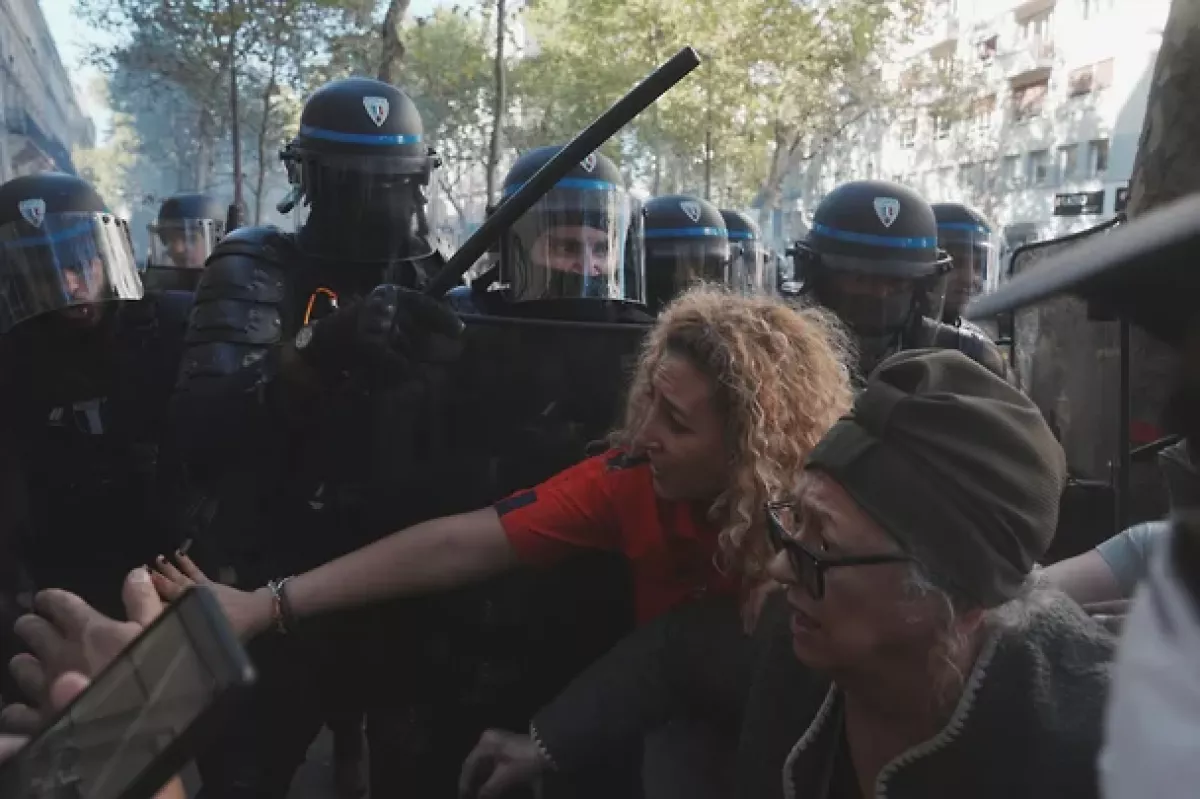
According to the Ministry of Education, roughly one-third of primary school teachers went on strike, while unions claim that in some areas—such as Paris—up to 45% of teachers joined. Strikes were accompanied by blockades of several schools and universities. Union reports indicate that students actively joined the protests, expressing discontent over rising tuition fees and reduced education funding.
Many healthcare workers also participated, demanding proper support for the public healthcare system. As Le Monde reports, in Morlaix, public hospital employee Ludovic Lagadec said he would like to take his children to a restaurant once a month and on holidays, excursions, or amusement parks once a year. Yet his current salary and expenses make this impossible.
Pharmacists also went on strike—due to Macron’s planned neoliberal reform of medical insurance, state subsidies for medicines are set to be cut, which is expected to cause a significant increase in prices. Out of 20,000 pharmacies in France, 18,000 were closed that day. In Le Mans, pharmacists organised a sit-in strike. Workers in public utility and tax services also participated. Overall, over 12% of civil servants in France went on strike, more than double the participation on September 10.
In Besançon, “Yellow Vests” took part in the protests. One activist, Frédéric Vuillaume, already has 11 arrests, 178 hours in detention, six criminal proceedings, a search, and 21 fines due to his activism.
Around a hundred railway workers, despite police presence, managed to break into the Ministry of Economy in Paris. Union activists lit flares and declared: “They know how to find money—it’s enough to look in the pockets of billionaires.”
In Dunkirk, where factories have faced major layoffs, a large flag featuring a portrait of Che Guevara was raised above the union column. Order at the demonstration was effectively maintained by metalworkers from the ArcelorMittal plant.
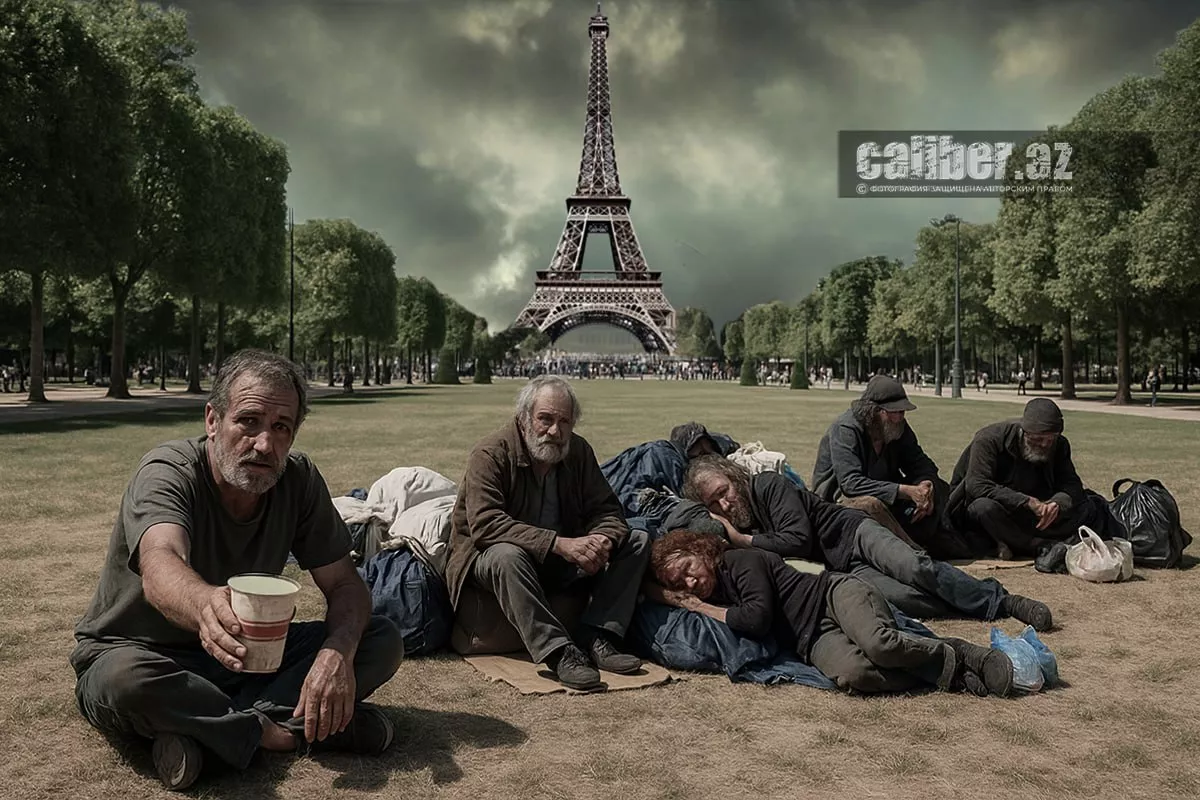
Activists said: “What kind of system is this, where a working person cannot earn a living?” They also claim that Macron is simply showing the people the middle finger, continuing his unpopular reform policies. The French have also ironically noted that Macron promised to fight poverty but is actually fighting the poor.
Demonstrations and protests took place in Toulouse (up to 40,000 participants), Nantes (10,000), Besançon, Clermont-Ferrand, Tours, and hundreds of other locations. There were 700 road protests, and in 29 cases tires were set on fire.
Despite the “scare tactics” from the Interior Minister, the protests were largely peaceful and disciplined this time. Confrontations with police occurred only in isolated areas.
In Nantes, law enforcement used tear gas and made arrests. Clashes with police also occurred in Lyon, where a journalist was injured. In Rennes, a gendarme was injured in the arm while arresting a participant from the “black bloc.” In Paris, the daytime demonstration was marked by confrontations with police from the outset, with the first clashes occurring in the 11th arrondissement.
Anarchists and radicals in masks attacked several shops, and a bank window was smashed on Boulevard Voltaire. Security forces used tear gas and batons and were pelted with stones. Around 5 p.m., police attacked a procession heading to Place de la Nation. Journalists reported a woman with her face covered in blood from a head wound.
The Interior Ministry reports a total of 309 protesters arrested and 26 police officers and gendarmes injured. 134 of the detainees are in custody, including seven minors.
Authorities claim that 506,000 people took to the streets on September 18, including 55,000 in Paris. Unions, however, assert that more than one million participated in the demonstrations and strikes. Today, French workers find themselves in a strong position against Macron. On September 19, the inter-union federation is scheduled to meet to develop a plan for further action.
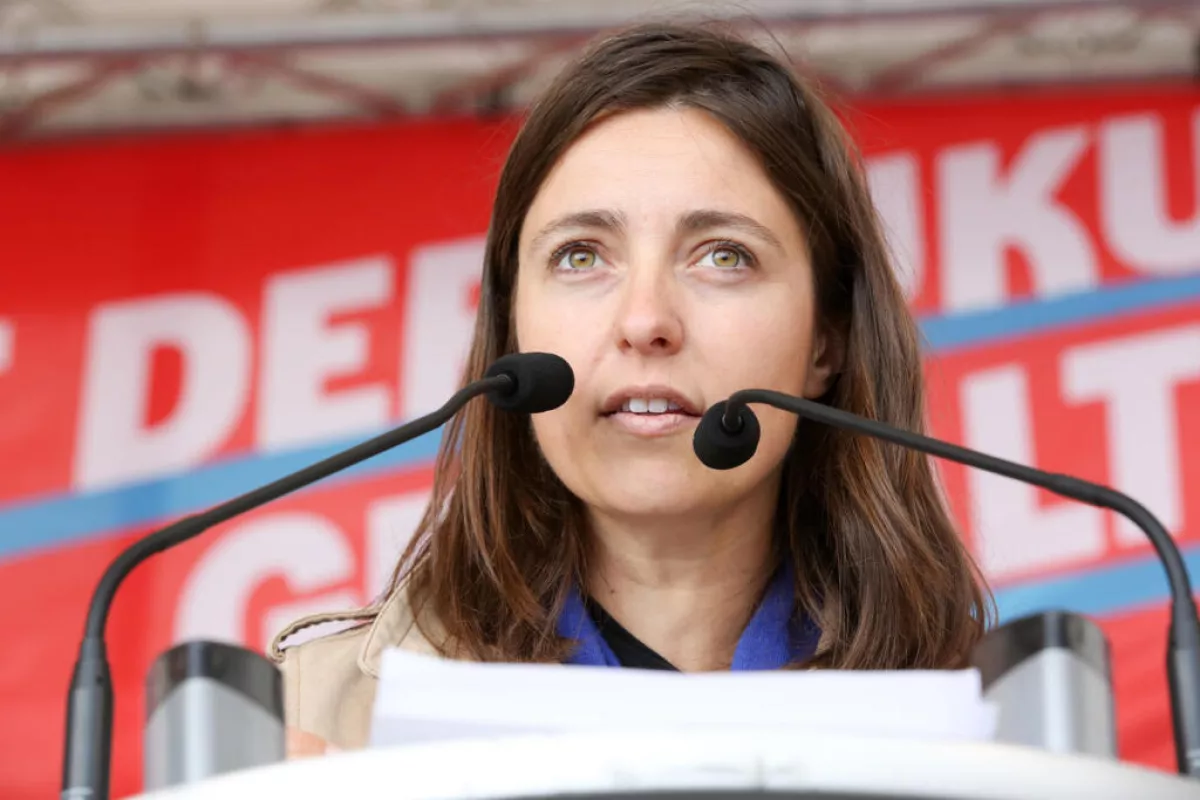
Sophie Binet, leader of the General Confederation of Labour (CGT), already described this day of protests as an ultimatum to the government: “The Prime Minister must respond very quickly, or there will be more of them.” In turn, the new head of the cabinet, Lecornu, stated that the demands of unions and demonstrators are being addressed in the consultations he initiated.
Will the Macronists make concessions to the unions, or continue their adventurous and anti-social course? Everything will depend on the activity and unity of ordinary French citizens, and the outcome of this confrontation will become clear in the near future…








